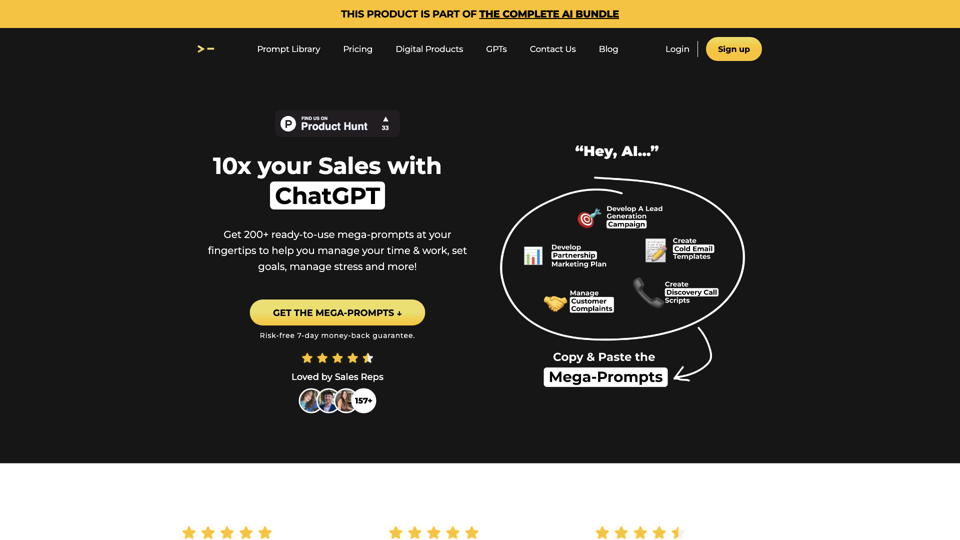What is ChatGPT Mega-Prompts for Sales?
Feature
ChatGPT Mega-Prompts for Sales is a collection of advanced, ready-to-use AI prompts specifically engineered for sales professionals. They cover Customer Engagement, Market Research, Lead Generation, Proposal Development, Sales Process Management, and Partnership & Incentives - essentially your entire sales pipeline in prompt form.
How
Our ChatGPT prompts help you generate qualified leads in minutes, craft personalized sales pitches, create compelling proposals, develop market research reports, design follow-up sequences, build partnership strategies, automate customer engagement, structure sales processes, and create incentive programs.
Price
Get the Mega-Prompts for Sales at $67.00 (originally $37.00) with a 7-day risk-free guarantee.
Helpful Tips
- Use ChatGPT Plus for optimal results and faster processing of our advanced prompts.
- Our Mega-Prompts are tested in real sales environments, engineered for specific sales outcomes, and include context-aware variables, chain-prompting technology, situational variations, and industry-specific adaptations.
Frequently Asked Questions
What exactly are ChatGPT Mega-Prompts for Sales?
Our Mega-Prompts for Sales are advanced, ready-to-use AI prompts specifically engineered for sales professionals.
What sales tasks can I solve with these ChatGPT prompts for Sales?
Our ChatGPT prompts help you generate qualified leads, craft personalized sales pitches, create compelling proposals, develop market research reports, design follow-up sequences, build partnership strategies, automate customer engagement, structure sales processes, and create incentive programs.
Do I need the paid version of ChatGPT to use these prompts?
While basic prompts work with ChatGPT free version, we recommend ChatGPT Plus for optimal results and faster processing of our advanced prompts.
How are these different from free ChatGPT sales prompts?
Unlike generic prompts, our Mega-Prompts are tested in real sales environments, engineered for specific sales outcomes, and include context-aware variables, chain-prompting technology, situational variations, and industry-specific adaptations.
